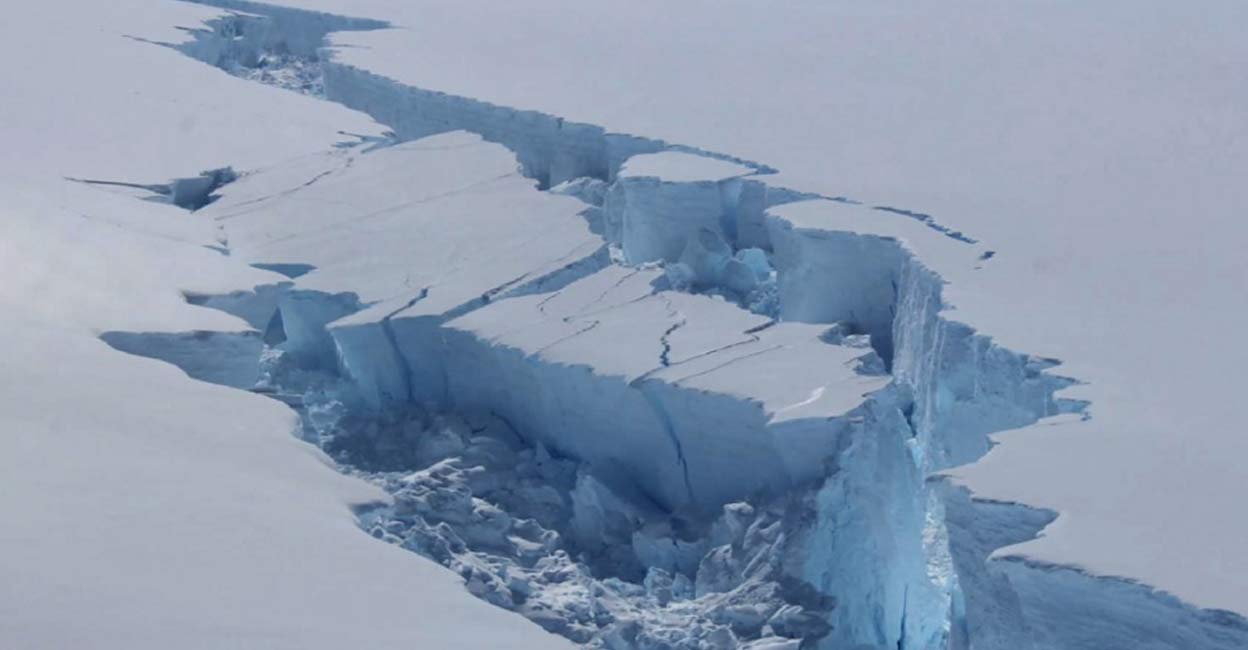2011-2020 was warmest decade on record, says WMO


Mail This Article
The rate of climate change surged alarmingly between 2011-2020, which was the warmest decade on record, according to a report by World Meteorological Organisation (WMO).
The ‘Global Climate 2011-2020: A Decade of Acceleration’ sounded the alarm, in particular, at the profound transformation taking place in polar regions and high mountains.
The report was released at the UN Climate Change Conference, COP28, and emphasizes the need for much more ambitious climate action to try to limit global temperature rise to no more than 1.5°C above the pre-industrial era.
Key findings of the report
Warmest decade on record
• Each successive decade since the 1990s has been warmer than all previous decades. Global mean temperature for the period 2011-2020 was 1.10 ± 0.12°C above the 1850-1900 average. This is based on the average of six data sets and is consistent with the value derived by the Intergovernmental Panel on Climate Change (IPCC) — 1.09°C — using a different combination of data sets. The warmest six years on record globally were between 2015 and 2020.
• The actual warmest year was quite likely 2016, which followed the exceptionally powerful 2015-2016 El Nino episode. More countries reported record high temperatures than in any other decade.
Ocean warming and acidification
• Around 90 per cent of the accumulated heat in the Earth system is stored in the ocean. Ocean warming rates show a particularly strong increase in the past two decades. Ocean warming rates for the upper 2000m depth reached rates of 1.0 ± 0.1 Wm-2 over the period 2006-2020, compared with 0.6 ± 0.1 Wm-2 over the full 1971-2020 period. It reached a record high in 2020 and it is expected that this trend will continue in the future.
• A consequence of the accumulation of CO2 in the ocean is its acidification, namely a drop in the oceanic pH, which makes it more challenging for marine organisms to build and maintain their shells and skeletons.
• Marine heatwaves are becoming more frequent and intense. In any given year between 2011 and 2020, approximately 60 per cent of the surface of the ocean experienced a heatwave.
• Global mean sea level rise is accelerating, largely because of ocean warming and the loss of land ice mass. From 2011 to 2020, sea level rose at an annual rate of 4.5mm.
• Global mean sea level rise has accelerated, mostly due to a speeding up of ice mass loss from the Greenland ice sheet, and, to a lesser extent, due to accelerated glacial melting and ocean warming.
Glacier loss
• Glaciers that were measured around the world thinned by approximately 1 metre per year on average between 2011 and 2020.
• The latest assessment based on 42 reference glaciers with long-term measurements reveals that the period between 2011 and 2020 saw the lowest mean mass balances of any observed decade. Some of the mass balance reference glaciers have already melted away, as the winter snow nourishing the glacier melts completely during the summer months.
• Nearly all the 19 primary glacier regions have witnessed increasingly large negative values from 2000 to 2020.
• The remaining glaciers near the Equator are generally in rapid decline. Glaciers in Papua, Indonesia are likely to disappear altogether within the next decade. In Africa, glaciers on the Rwenzori Mountains and Mount Kenya are projected to disappear by 2030, and those on Kilimanjaro by 2040.
• Greenland and Antarctica lost 38 per cent more ice between 2011 and 2020 than during the 2001-2010 period.
• The Greenland and Antarctic continental ice sheets are the largest freshwater reservoirs on Earth, storing a volume of 29.5 million km3 of frozen water. When ice sheets lose mass, they directly contribute to raising the global mean sea level and, therefore, monitoring the volume of ice they gain or lose is critical to assessing sea level change.
Smaller ozone hole
• The ozone hole was smaller in the 2011-2020 period than during the two previous decades.
• On average, over the 2011-2020 period, the annual maximum mass deficit was lower than during the previous two decades. Due to the actions taken under the Montreal Protocol, the total amount of chlorine entering the stratosphere from controlled and uncontrolled Ozone Depleting Substances (ODSs) such as Chlorofluorocarbons (CFCs) declined by 11.5 per cent from its peak value of 3,660 ppt in 1993 to 3,240 ppt in 2020.
• Total ozone values in the Antarctic are projected to return to 1980 values by around 2065. Total springtime ozone is expected to return to 1980 values in the Arctic by approximately 2045.
Extreme events
• Extreme events across the decade had devastating impacts, particularly on food security and human mobility. Weather and climate-related events were responsible for nearly 94 per cent of all disaster displacement recorded over the last decade, and played a role in the backward trend in the progress of global efforts to end hunger, food insecurity, and malnutrition.
• For many extreme events, the likelihood of an event of that magnitude has been altered, often greatly, because of anthropogenic climate change. Virtually every attribution study found that the likelihood of an extreme heat event increased significantly.
• Heatwaves were responsible for the highest number of casualties, while tropical cyclones caused the most economic damage.
• The number of casualties from extreme events has declined. A major contributor to this decrease has been improved early warning systems, driven by improvements in forecasting, coupled with improved disaster management. The 2011-2020 decade was the first since 1950 when there was not a single short-term event with 10,000 deaths or more.
• However, economic losses from extreme weather and climate events have continued to increase. While Hurricane Katrina in 2005 remains the world’s most costly weather disaster, the next four most costly events were all hurricanes that occurred in the 2011-2020 decade, and whose greatest impacts were in the United States and/or its territories.


